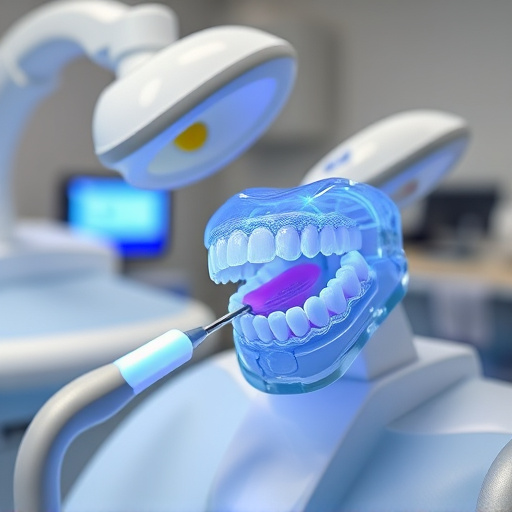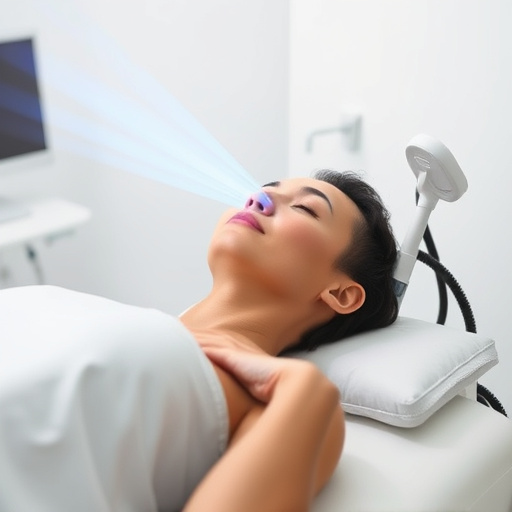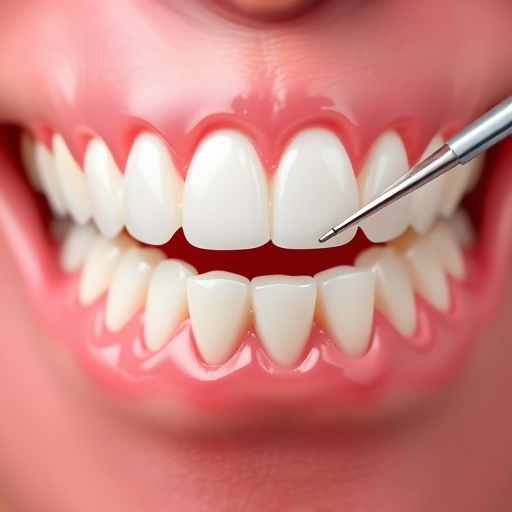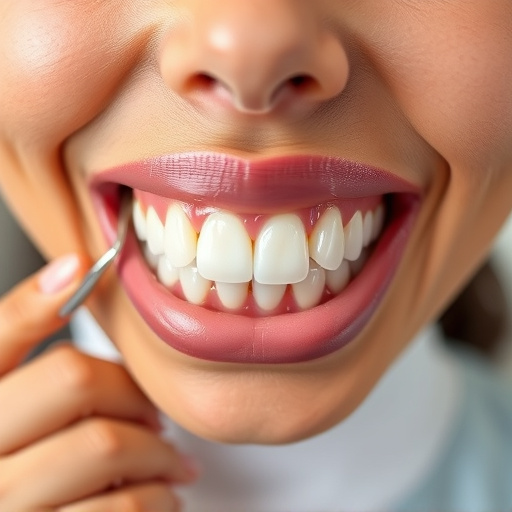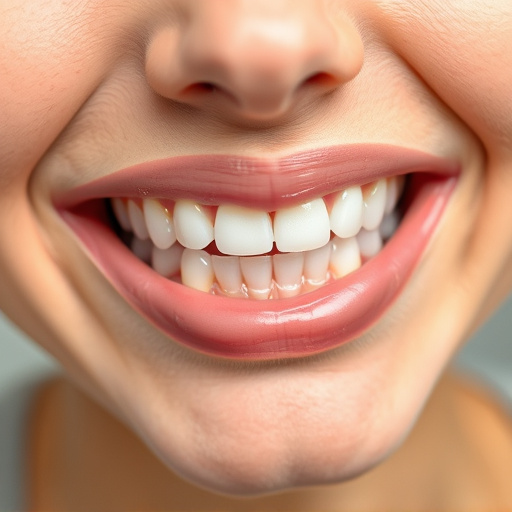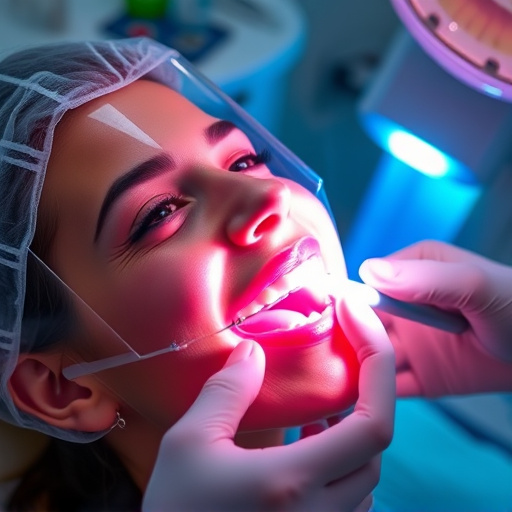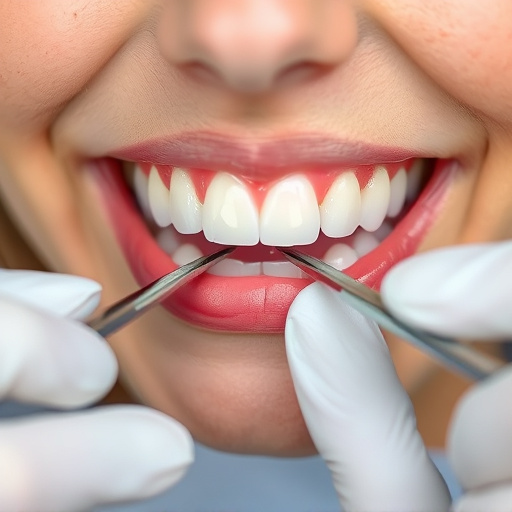Maintaining good oral hygiene is crucial for overall health and wellness, as neglect can lead to systemic diseases like cardiovascular issues, diabetes, and respiratory problems. Oral hygiene education equips individuals with knowledge about proper brushing, flossing, cleanings, check-ups, and treatments to prevent gum disease, tooth decay, and loss. This proactive approach saves time and money while reducing the risk of serious health conditions associated with poor oral hygiene, contributing to a healthier, happier life. Early detection through regular oral exams is key for children's dentistry, promoting healthier habits and long-term health benefits. Understanding the role of bacteria in oral health and practicing effective hygiene techniques are essential components of oral hygiene education.
Oral hygiene education is a powerful tool with long-term health benefits, serving as a gateway to overall well-being. This article delves into the profound impact of maintaining a healthy mouth on systemic conditions, exploring the intricate link between oral and systemic health. We discuss how bacteria, often unseen, can wreak havoc throughout the body, emphasizing the crucial need for education across all demographics. By examining age-appropriate instruction, engaging strategies, community outreach, and integration within healthcare and schools, we outline effective programs to promote lifelong oral hygiene habits.
- The Impact of Oral Hygiene on Overall Health
- – Linking oral health to systemic conditions
- – The role of bacteria and their effects on the body
The Impact of Oral Hygiene on Overall Health
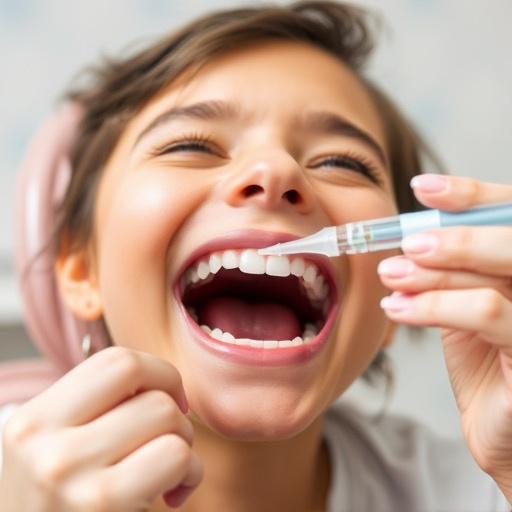
Maintaining good oral hygiene is often overlooked as a component of overall health and wellness. However, the mouth acts as a gateway to the rest of the body, and neglecting dental care can have far-reaching consequences. Research consistently shows that there is a strong connection between oral health and systemic diseases, including cardiovascular issues, diabetes, and respiratory problems. Poor oral hygiene can lead to gum disease, tooth decay, and even tooth loss, which not only impact an individual’s quality of life but also pose significant risks to their overall well-being.
Oral hygiene education plays a pivotal role in empowering individuals to take charge of their dental health. By learning proper brushing and flossing techniques, understanding the importance of regular dental cleanings and check-ups, and being aware of treatments like dental crowns, fillings, or bonding for specific issues, people can prevent many dental problems from occurring in the first place. This proactive approach not only saves time and money in the long run but also contributes to a healthier, happier life by reducing the risk of developing serious health conditions associated with poor oral hygiene.
– Linking oral health to systemic conditions
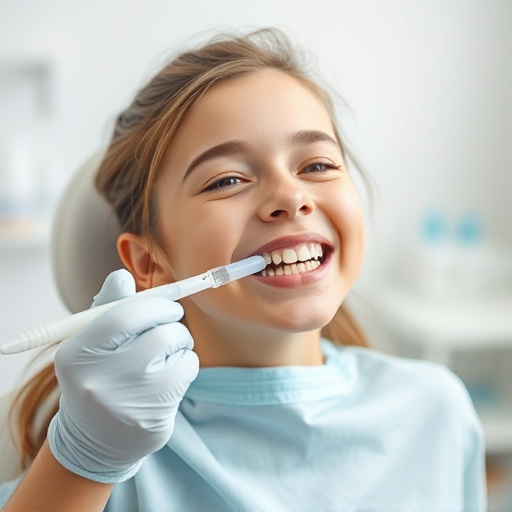
Oral health is often considered separate from overall wellness, but research has consistently shown a strong link between the two. Systemic conditions like cardiovascular disease, diabetes, and respiratory issues have been associated with poor oral hygiene. For instance, inflammation in the mouth can lead to increased systemic inflammation, impacting various organs. This connection underscores the importance of incorporating oral hygiene education into preventive dentistry practices, especially for children’s dentistry. Regular routine oral exams can play a pivotal role in identifying potential issues early, promoting better oral health habits, and ultimately contributing to long-term health benefits.
– The role of bacteria and their effects on the body
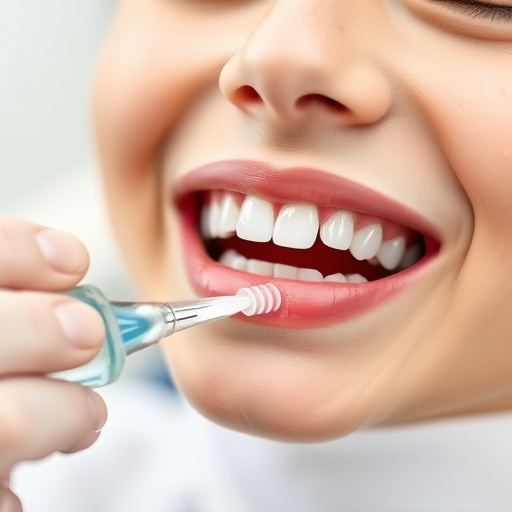
Bacteria play a significant role in our oral health and overall well-being. The mouth is home to trillions of microorganisms, both beneficial and harmful bacteria, which form complex communities known as the oral microbiome. While some bacteria are essential for breaking down food and maintaining a healthy balance, others can cause detrimental effects if left unchecked. Pathogenic bacteria, when present in excess, can lead to various oral health issues such as tooth decay, gum disease, and even more severe systemic conditions.
Oral hygiene education is crucial in empowering individuals to understand and manage these microbial communities. By learning about the impact of bacteria on teeth and gums, people can adopt better brushing techniques, use mouthwash effectively, and make informed decisions regarding comprehensive dental care. This includes regular dental check-ups, professional cleanings, and in some cases, procedures like dental crowns to restore oral health. Furthermore, educating children’s dentistry practices can help instill good habits from a young age, ensuring a lifetime of healthy smiles and setting the foundation for a robust immune system.
Oral hygiene education is a powerful tool for promoting long-term health benefits. By understanding the impact of oral care on systemic conditions, we can recognize the profound connection between our mouth and body. The knowledge that proper brushing, flossing, and regular dental check-ups can help combat bacteria’s detrimental effects on overall health underscores the importance of oral hygiene education. Investing in these practices not only ensures a healthy smile but also contributes to a vibrant, thriving body.
